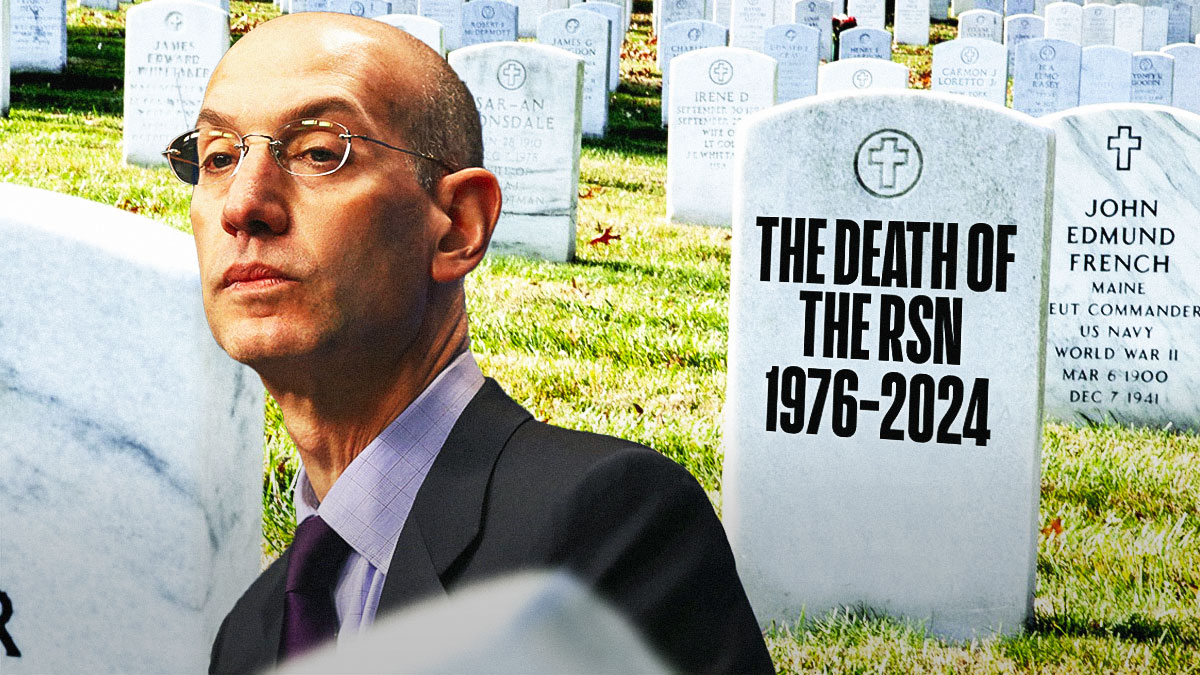NBA's Adam Silver gets brutally honest about slow death of sports networks

09/11/2024 07:28 AM
In a recent NBA Board of Governors meeting, Commissioner Adam Silver highlighted the significant challenges facing the league's regional sports networks (RSNs). Silver's remarks underscored the financial instability and declining reach of these networks, many of which have become insovlent while tearing up NBA contracts. The RSN model was a crucial part of the NBA's broadcasting strategy, but it now looks like a cadaver when it comes to future business.
The NBA’s explorations of European opportunities were the most exotic topic on the table. The folding of RSNs has been a troubling trend affecting markets of all sizes. Silver pointed out a stark reality, but one soothed over by the NBA’s new broadcasting agreements.
“Prior to us completing our national deals, I think 18 of our RSNs were either defunct or in bankruptcy," Silver said. “This statement reflects the broader struggles within the RSN model, which has seen a steady decline in both the number of homes covered and the revenue generated over the past few years.”
It appears the broadcasting strategy will be mapped out before any new cities are added to the NBA map. Silver poured a pail of cold water on any expansion plans being released any time soon.
“There was not a lot of discussion in this meeting about expansion, but only largely because — not for lack of interest — it’s because we had said to [potential franchise suitors] that we’re not quite ready,” Silver explained. “It was something that we told our board we plan to address this season. We’re not quite ready yet. There’s interest in the process, and I think that we’re not there yet with having made specific decisions about markets or even frankly, to expand.”
RSN death affects NBA business
The decline of RSNs has significant implications for the NBA. These networks have traditionally provided localized coverage of games, catering to regional fan bases and generating substantial revenue for the league. However, the financial troubles of these networks have forced the NBA to reconsider its broadcasting strategy. Teams like the Phoenix Suns and New Orleans Pelicans are moving to over-the-air, in-house broadcasting options for instance.
Silver acknowledged the writing was on the wall. He also noted that the league had been paying close attention to diminishing returns from the RSN model.
"If you look back, sort of just graph it over the last few years in terms of both decline in number of homes covered by those RSNs and decline in revenue, that is the reality in that aspect of our business," Silver shared.
In response to these challenges, the NBA is exploring new ways to deliver content to fans. The league's national media deals, which include partnerships with major networks and streaming platforms, are part of this strategy. These deals aim to offset the losses from struggling RSNs by reaching a broader audience and leveraging the growing trend of digital consumption.
The NBA's approach to addressing the challenges faced by RSNs will be crucial in maintaining its strong connection with fans and ensuring the financial health of the league. As the media landscape continues to evolve, the NBA's ability to adapt and innovate will be key to its future success.
The post NBA’s Adam Silver gets brutally honest about slow death of sports networks appeared first on ClutchPoints.


